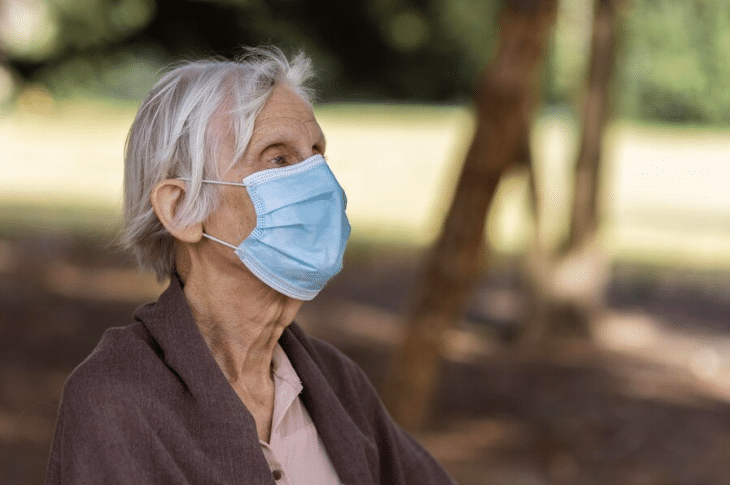Introduction
Pollution is a worldwide problem that is progressively impacting human health. According to the World Health Organization, over 90% of people worldwide breathe in contaminated air, which results in over 4.2 million untimely deaths each year. The impacts of environmental pollution adversely affect the elderly, whose health may already be declining due to the effects of aging. Understanding the causes of air pollution and monitoring air quality today is essential for protecting this vulnerable group.
Pollution: Types and Sources
Pollution refers to toxic substances in the environment that negatively affect the ecosystem and health of humans. The following are types of pollutants that impact human health:
Air Pollution: Originating from vehicle emissions, industrial activities, and burning fossil fuels, air pollution is particularly harmful due to its delicate particulate matter (PM2.5 and PM10) and toxic gases like carbon monoxide and sulfur dioxide. Air pollution and control measures are crucial, as pollutants can worsen asthma symptoms and other respiratory conditions.
Water Pollution: Contaminated water sources, such as untreated waste, agricultural runoff, and industrial discharge, can pose serious health risks, emphasizing the need for clean water access.
Soil Pollution: Chemical waste, pesticides, and fertilizers leach into the soil, potentially entering the food chain and affecting human health.
Noise Pollution: Traffic, industrial activities, and urban noise create stress, impact mental health, and disrupt sleep. Living in areas with poor air quality in Greater Noida or other urban locations can compound these issues.
How Pollution Impacts Elderly Health
For elderly individuals, pollution can worsen existing health conditions and lead to new health issues. Here are some of the critical ways pollution affects older adults:
Respiratory Issues: Older adults with respiratory conditions such as asthma, bronchitis, or chronic obstructive pulmonary disease (COPD) are highly vulnerable to air pollution. Studies show that an increase in PM2.5 levels is linked to higher hospitalizations among elderly patients for respiratory ailments. Knowing the air quality near me can help in managing exposure and asthma treatment.
Cardiovascular Risks: Studies show that older persons exposed to pollutants have a markedly increased risk of heart attacks, strokes, and heart failure. Fine particulate matter entering the bloodstream can cause inflammation, elevated blood pressure, and cardiovascular events. According to WHO estimates, each year, air pollution causes about 1.4 million deaths from heart disease and stroke.
Cognitive Decline: Exposure to air pollution has been associated with cognitive decline and a higher risk of dementia and Alzheimer’s disease in the elderly. Pollutants can enter the brain via the bloodstream, leading to oxidative stress and inflammation, which damage cognitive health.
Increased Susceptibility to Infections: Elderly individuals have a weakened immune response, making them more susceptible to infections. Pollution, especially high levels of PM2.5 and nitrogen dioxide (NO2), can further impair immune function, leaving elderly individuals vulnerable to respiratory infections, such as pneumonia, which can be life-threatening.
Mental Health and Well-being: Stress, anxiety, and even depression can be aggravated by pollution, especially noise pollution, in older persons who may already be dealing with health issues or social isolation. Long-term exposure to loud noises can interfere with sleep, exacerbating physical and mental health problems.
How to Manage Pollution’s Impact on the Elderly
A caring and active approach is essential for helping elderly family members deal with the effects of pollution. Consider the following personal and healthcare strategies:
Providing Comprehensive Healthcare Support
Regular Health Screenings: Regular examinations can identify early indicators of diseases linked to pollution, such as heart or respiratory disorders. In high-pollution locations, health specialists can provide specific advice on how to manage these problems.
Access to Respiratory and Cardiac Care: Hospitals can provide specialist care and assistance for elderly people suffering from pollution-related illnesses, including preventive measures, treatments, and ongoing monitoring to protect their health.
Creating a Safe Indoor Environment
Using Air Purifiers at Home: Indoor air purifiers can significantly lower the amount of airborne pollutants, protecting older people, particularly those who suffer from asthma, COPD, or other respiratory conditions. Ensuring that rooms are dust-free and have adequate ventilation is also beneficial.
Reducing Indoor Pollutants: Selecting eco-friendly items, reducing the use of harsh chemicals, and maintaining a smoke-free home all improve air quality and promote lung health.
Encouraging Precautionary Measures on High-Pollution Days
Monitoring the Air Quality Index (AQI): In order to assist elderly family members in making suitable outdoor activity plans, caregivers can examine the AQI values. Reducing exposure to the outdoors and choosing indoor activities on days with high pollution levels protects health.
Providing Protective Gear: Masks can reduce the amount of pollutants inhaled when exposure to the outdoors cannot be avoided. Hospitals can educate caregivers on choosing appropriate masks and when to use them.
Promoting Hydration and Access to Clean Water
Ensuring Clean Water Sources: Pollution affects water quality, too, so providing filtered or purified water helps reduce exposure to contaminants. Hydration is also crucial, as it aids the body in detoxifying and supports overall health.
Encouraging Regular Fluid Intake: Older adults may require reminders to stay hydrated, especially in warmer months when pollution can be more intense. Health professionals can advise on optimal fluid intake and guide on choosing water filtration options if needed.
By integrating healthcare support and family assistance, elderly individuals can better manage the impact of pollution on their health, ensuring they have a safe and nurturing environment for their well-being.
Conclusion
For elderly adults, pollution is a hidden yet serious health risk. Pollution levels increase the likelihood of adverse effects on health, especially for elderly people who may already be dealing with chronic conditions. Addressing the sources of air pollution and understanding air pollution and control strategies are essential. The detrimental effects of pollution on the elderly must be addressed through individual effort and assistance from healthcare facilities.

